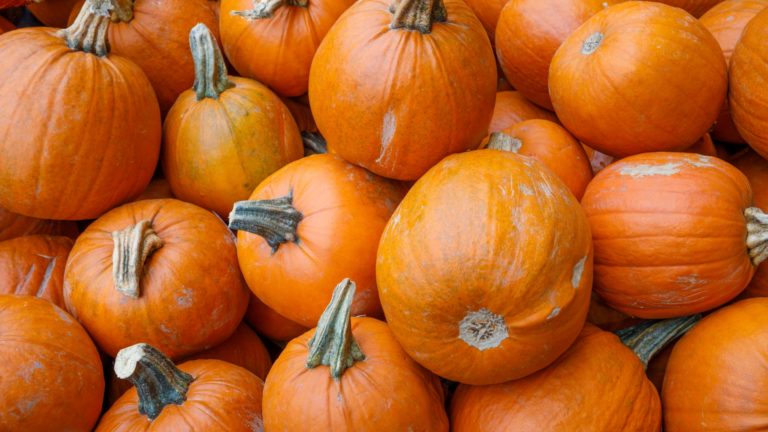You might unknowingly be poisoning your dog. There are so many foods we eat that are toxic to dogs. Just because your dog likes something, it  doesn’t mean that you should give it to him. It makes me cringe when I hear people say that they spoil their pets. The word, “spoil” means to destroy and that is exactly what people are doing to their dogs. Don’t love your dog to death!
doesn’t mean that you should give it to him. It makes me cringe when I hear people say that they spoil their pets. The word, “spoil” means to destroy and that is exactly what people are doing to their dogs. Don’t love your dog to death!
Although it might seem like a long list of foods to avoid, it is not complete. The list can go on and on. The educational staff from the Drs. Foster & Smith website did an excellent job.
Feeding the foods mentioned in this article often lead to illness and disease. These toxins affect different systems in a dog’s body. The cardiovascular system, gastrointestinal system and, neurological system are at great risk of damage and disease that might be irreversible. Some of these toxic foods cause issues with the blood. Other toxic foods lead to kidney/organ failure. 
There are some things which many experts would disagree with:
Baby food that does NOT contain onion powder is fine. You can read the ingredients on the label.
Bones from poultry and meat are fine only while still raw. When they are cooked or dried out they may splinter.
Eggs – Many would also disagree on the eggs whether they are cooked or raw. The issue with raw eggs is the egg whites. Egg whites contain a gycoprotein called avidin. It binds well to biotin (vitamin B7) and could lead to a biotin deficiency if a dog is fed too much raw egg on a constant basis. If you want to feed eggs very often, you might consider cooking the egg white very lightly and serving the yolks raw. As far as the yolks go, they are fine to feed often whether raw or cooked.
String??? I don’t know how “st ring” made its way into the chart. It’s not a form of food where I come from.
ring” made its way into the chart. It’s not a form of food where I come from.
Table scraps depend on how you define “table scraps” and the quantity. For example, a broccoli floret or two is fine.
Garlic is toxic if you give too much (like feeding 75 cloves to a 70-pound dog). Some all-natural flea supplements have a very small amount. I would personally prefer to give fresh garlic to my dogs over topical or oral pesticides. The food I feed my dogs contains a small amount of garlic. You can read The BEST Dog Food to find out more about my dog’s food.
I would add apple seeds, avocado, chewing gum, corn on the cob (corn products tend to be highly allergic to dog s. They are frequently used in cheaper dog food as a filler and to save money because it is such a cheap ingredient. The cob can easily get caught in the small intestine), currants, eggplant, mustard seeds, nuts in general (many different types are bad), xylitol (a sweetener).
s. They are frequently used in cheaper dog food as a filler and to save money because it is such a cheap ingredient. The cob can easily get caught in the small intestine), currants, eggplant, mustard seeds, nuts in general (many different types are bad), xylitol (a sweetener).
The toxic portion of peaches, plums, and apricots is the seeds which contain cyanide
It’s a good idea to have the number of your vet, a 24-hour emergency clinic, and the ASPCA Animal Poison Control Center 888-426-4435
|
Items to avoid |
Reasons to avoid |
|
Alcoholic beverages |
Can cause intoxication, coma and death. |
|
Baby food |
Can contain onion powder, which can be toxic to dogs. (Please see onion below.) Can also result in nutritional deficiencies, if fed in large amounts. |
|
Bones from fish, poultry, or other meat sources |
Can cause obstruction or laceration of the digestive system. |
|
Cat food |
Generally too high in protein and fats. |
|
Contain caffeine, theobromine, or theophylline, which can be toxic and affect the heart and nervous systems. |
|
|
Can cause vomiting. |
|
|
Fat trimmings |
Can cause pancreatitis. |
|
Contain an unknown toxin, which can damage the kidneys. |
|
|
Hops |
Unknown compound causes panting, increased heart rate, elevated temperature, seizures, and death. |
|
Human vitamin supplements containing iron |
Can damage the lining of the digestive system and be toxic to the other organs including the liver and kidneys. |
|
Large amounts of liver |
Can cause Vitamin A toxicity, which affects muscles and bones. |
|
Contain an unknown toxin, which can affect the digestive and nervous systems and muscle. |
|
|
Can depress the nervous system, cause vomiting, and changes in the heart rate. |
|
|
Milk and other dairy products |
Some adult dogs and cats do not have sufficient amounts of the enzyme lactase, which breaks down the lactose in milk. This can result in diarrhea. Lactose-free milk products are available for pets. |
|
Can contain multiple toxins causing vomiting and diarrhea and can also affect other organs. |
|
|
Can contain toxins, which may affect multiple systems in the body, cause shock, and result in death. |
|
|
Onions and garlic (raw, cooked, or powder) |
Contain sulfoxides and disulfides, which can damage red blood cells and cause anemia. Cats are more susceptible than dogs. Garlic is less toxic than onions. HOWEVER, small amounts of garlic is healthy and also helps repel ticks & fleas. |
|
Persimmons |
Seeds can cause intestinal obstruction and enteritis. |
|
Pits from peaches and plums |
Can cause obstruction of the digestive tract. |
|
Potato, rhubarb, and tomato leaves; potato and tomato stems |
Contain oxalates, which can affect the digestive, nervous, and urinary systems. This is more of a problem in livestock. |
|
Raw eggs |
Contain an enzyme called avidin, which decreases the absorption of biotin (a B vitamin). This can lead to skin and hair coat problems. Raw eggs may also contain Salmonella. |
|
Raw fish |
Can result in a thiamine (a B vitamin) deficiency leading to loss of appetite, seizures, and in severe cases, death. More common if raw fish is fed regularly. |
|
Salt |
If eaten in large quantities it may lead to electrolyte imbalances. |
|
String |
Can become trapped in the digestive system; called a “string foreign body.” |
|
Sugary foods |
Can lead to obesity, dental problems, and possibly diabetes mellitus. |
|
Table scraps (in large amounts) |
Table scraps are not nutritionally balanced. They should never be more than 10% of the diet. Fat should be trimmed from meat; bones should not be fed. |
|
Tobacco |
Contains nicotine, which affects the digestive and nervous systems. Can result in rapid heart beat, collapse, coma, and death. |
|
Yeast dough |
Can expand and produce gas in the digestive system, causing pain and possible rupture of the stomach or intestines. |
Sources:
| “Foods to Avoid Feeding Your Dog.” Pet Education. N.p., n.d. Web. 1 Nov. 2014. <http://www.peteducation.com/article.cfm?c=2+1661&aid=1030>.
Hogan, Rita. “Our Best Home Recipes For Fleas.” Dogs Naturally Magazine. Dogs Naturally, 18 Mar. 2016. Web. 28 Mar. 2016. <http://www.dogsnaturallymagazine.com/best-home-remedies-fleas/?inf_contact_key=db88a24b03d48aa4a60c1ce77e03adcb0aaad4bebc8b2ba55f7a1e14b8fcc628>. |
Essentiallydogs.com is an educational resource, and all information herein is strictly for educational purposes. It is not intended to diagnose, treat, prevent, or cure disease, nor is it meant to replace the (prescribed) veterinary treatment. Always inform your veterinarian or healthcare provider of any products that your pet is taking, including herbal remedies and supplements. Please do plenty of research so that you may equip yourself with the knowledge necessary to be an effective advocate for your dog’s well-being.








